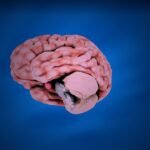
If life is a dream, then it presents us with the question of whether our reality is actually real or if it’s an illusion.
This philosophical concept has been pondered by many people over the centuries and has produced some interesting theories about the nature of existence.
In this article, we will explore what it means to think that life is a dream and the implications that such a belief has on our lives.
We will also look at some of the evidence that suggests this may be true and discuss the ways in which we can make sense of this concept.
Finally, we will consider how embracing this idea might affect our behavior for the better. So, let’s dive into what it would mean if life is a dream.
What is the concept of life being a dream?
The concept of life being a dream suggests that our reality is not as concrete and certain as we may think.
Instead, it proposes that the world around us is a product of our own imagination and perceptions.
This idea has been explored by philosophers for centuries, with some theorizing that everything we experience in life is actually a type of illusion or extraordinary dream.
According to this belief, our daily lives are like a play or movie in that we are both actors and audience members in – one that we have created and can alter if we want to.
This concept has numerous implications for how we view our lives and the world around us, as it suggests that reality is malleable and not necessarily fixed.
What is the evidence that Life may be a dream?

While there is no conclusive scientific evidence that life is a dream, there are some theories and observations worth considering.
Lucid dreams and out-of-body experiences
Lucid dreams and out-of-body experiences are two phenomena that suggest that we can exist outside of our physical bodies.
In a lucid dream, the dreamer is conscious of the fact that they are dreaming and has control over some aspects of their inner experience.
Similarly, an out-of-body experience (OBE) is when an individual feels as if they are outside of their own body and able to observe the world around them without actually being present.
These experiences show that our consciousness can exist independently of our physical form, which could be interpreted as evidence that life is not necessarily real in the way we think it is.
Quantum Mechanics
Quantum mechanics is a branch of physics that deals with the behavior of matter and energy on subatomic scales.
This field of study has raised some interesting questions about the nature of reality, including the possibility that our physical world may be an illusion.
This is because quantum particles are known to behave in strange ways, such as existing in multiple places simultaneously and being influenced by observers.
This behavior suggests that the physical world may not be as solid and certain as we think it is, which could support the idea that life may actually be a dream.
Brain activity during sleep
Brain activity during sleep is another factor that has been used to support the idea of life being a dream.
Studies have shown that certain parts of the brain are more active during sleep than when we are awake, suggesting that our subconscious minds may be playing an important role in creating and maintaining our realities.
This could mean that, like in a dream, the physical world is being created by our minds while we are asleep and that it changes or fades away when we awaken.
As such, this could be interpreted as evidence that life might actually be a dream.
Our perceptions and beliefs shape our reality
Our perceptions and beliefs play an important role in shaping our reality.
This is because what we think, feel, and believe about the world around us shapes how we interpret and experience it.
In other words, our realities are, in part created by our subjective experiences and interpretations of the world.
For example, if someone believes that life is hard and full of suffering, they will be more likely to perceive the world in this light.
On the other hand, if an individual believes that life is full of joy and beauty, then their experience will reflect this belief.
In short, our perceptions and beliefs are powerful forces that influence how we experience our realities.
Near-death experiences
Near-death experiences (NDEs) are phenomena in which individuals report having had spiritual or transcendental experiences when they were close to death.
Reports of NDEs often involve feelings of peace, joy, and being surrounded by light or loved ones who have passed away.
Some people even claim to have seen their lives flash before them or to have had a glimpse of the afterlife.
These experiences suggest that, while death may be the end of the physical body, our consciousness can continue in some form.
This could be interpreted as evidence that life is not limited to the physical world and that it may exist beyond what we currently understand.
Vivid memories of past events that may not have happened in reality
Vivid memories of past events that may not have actually happened are another factor that has been used to support the idea that life is a dream.
This phenomenon is known as false memory syndrome, and it occurs when an individual vividly remembers experiences or events from their past that did not actually happen.
These vivid memories can be so convincing and detailed that the person cannot tell the difference between reality and dream.
This can lead to confusion about what is true and what isn’t, suggesting that life may not be as solid or certain as we think it is.
Ancient beliefs in the illusory nature of life
Finally, many ancient cultures believed that life is an illusion or dream.
For example, in the Hindu philosophy of Advaita Vedanta, the reality is said to be ultimately illusory and unreal because it is based on the perception of a dualistic world.
This belief has been echoed in other spiritual traditions, such as Buddhism and Taoism, in which life is seen as a dreamlike state from which we must eventually awaken.
This suggests that, even in ancient times, there were people who believed that life might actually be a dream.
What are the arguments against Life a dream?

Although there is some evidence to suggest that life may be a dream, there are also arguments against this idea.
Lack of empirical proof by the scientific community
The lack of empirical proof by the scientific community is a major argument against the idea that life is a dream.
Although there has been some research into near-death experiences and false memories, this kind of evidence cannot be replicated in a laboratory setting.
This makes it difficult to draw any definite conclusions about whether these phenomena are actually evidence that life is a dream.
Arguments from common sense
Another argument against the idea that life is a dream is common sense.
Life seems to have tangible, physical properties and objects that can be touched or interacted with in some way. This suggests that it is not all an illusion or something to be dismissed as unreal.
Furthermore, people are generally aware of their own existence and the lives of others around them, which could be taken as evidence that life is not a dream.
Arguments from religion
Some would argue against the idea of life being a dream based on religious beliefs.
For example, many religions hold to the belief that life is real and that there is an afterlife or higher power at work in our world.
This suggests that life may be more than just a dream and that there may be something more to reality than what our senses can perceive.
The implication of predetermined free will and choices
The implication of predetermined free will and choices is another argument against the notion that life is a dream.
If life is an illusion, then our decisions may be predetermined and we may not actually have any real control over our own lives.
This could leave us feeling powerless and as if we are at the mercy of some greater force.
People might also be uncomfortable with the idea that their free will and choices are predetermined or that they are not in control of their own destinies.
This could be seen as a violation of our fundamental rights, suggesting that life may not be a dream after all.
The suggestion of lack of control over reality
The suggestion of a lack of control over reality is another argument against the idea that life is a dream.
If life is an illusion, then it could imply that we have no real control over our own lives and destinies.
This could be seen as frightening and disconcerting, as it suggests that there may be some greater force behind our lives that we cannot control.
Furthermore, it could lead people to feel powerless and insignificant, as if their lives have no ultimate purpose or meaning.
This could be seen as a violation of our fundamental rights, suggesting that life may not be a dream after all.
Difficult to accept death as an end rather than a transition
Another argument against the notion that life is a dream is the difficulty of accepting death as an end rather than a transition.
If life is an illusion, then it implies that death is also merely an illusion, and when we die, we simply wake up to another reality.
This could be seen as unsettling for some people who may not want to accept death as a permanent end to this life.
Furthermore, if death is simply an illusion, then it could lead people to question the meaning of their own lives and how they should live them.
This could be seen as disconcerting for some, suggesting that life may not be a dream after all.
Too abstract and complex for many people to accept
Finally, the idea that life is a dream may be too abstract and complex for many people to accept.
It suggests that reality may not be what it seems, which could lead people to question their own beliefs and experience of life.
Furthermore, this kind of thinking can be difficult to understand or relate to in our everyday lives, making it difficult to accept the notion that life is a dream.
Final thought
There is much to argue against the idea that life is a dream. Life appears to have tangible, physical properties and objects that can be experienced.
Also, arguments from religion suggest that life may be real and of greater significance than our senses can perceive.
In addition, the suggestion of predetermined free will and choices as well as lack of control over reality, could be seen as violations of our fundamental rights.
Finally, accepting death as an end rather than a transition and the complexity of the concept may make it difficult for many people to accept this idea. For these reasons, life is likely not a dream.


